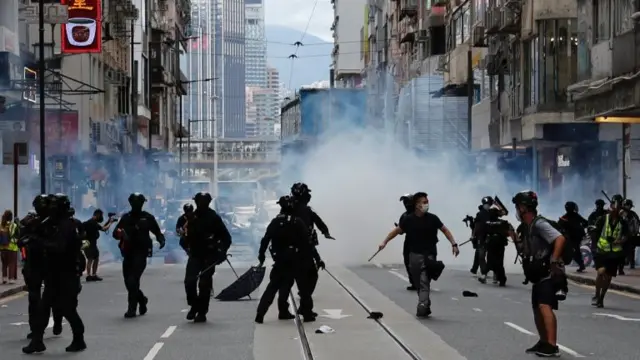Security law 'a serious violation' of UK-China treatypublished at 11:57 BST 1 July 2020
UK Foreign Secretary Dominic Raab said the new security law constituted a "clear violation" of the autonomy of Hong Kong and was a "clear and serious violation" of the treaty drawn up between the UK and China.
He told reporters in London that China had not lived up the promises it made to the people of Hong Kong.
